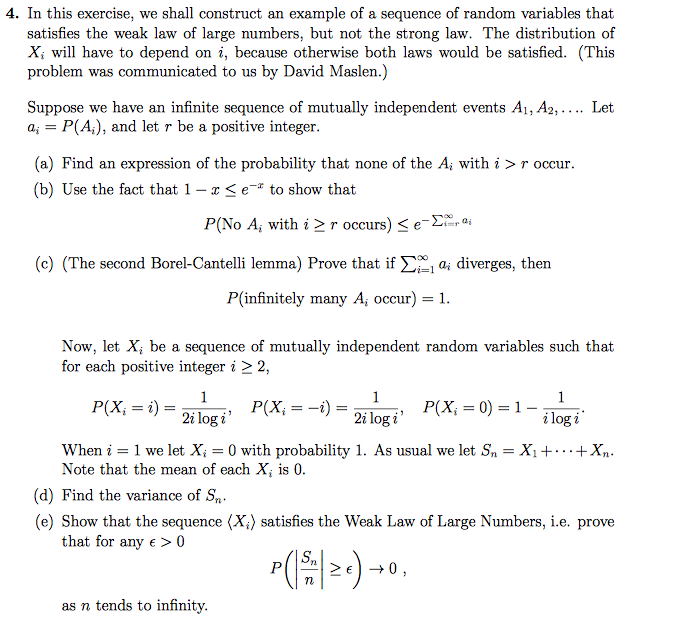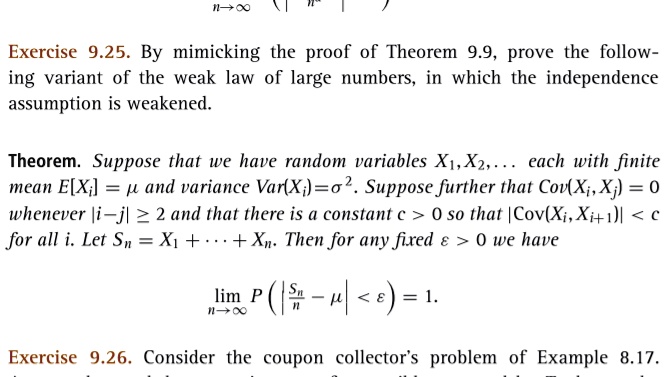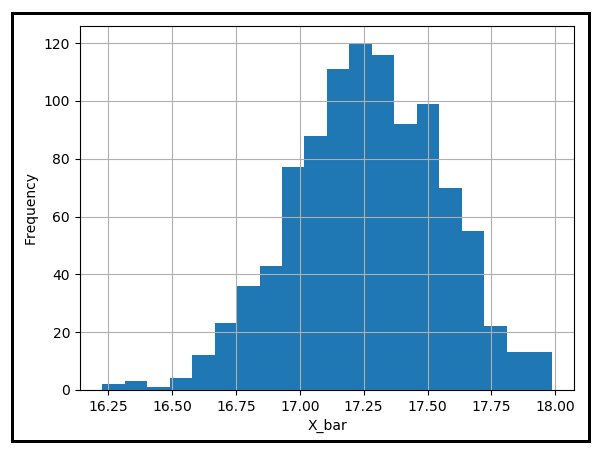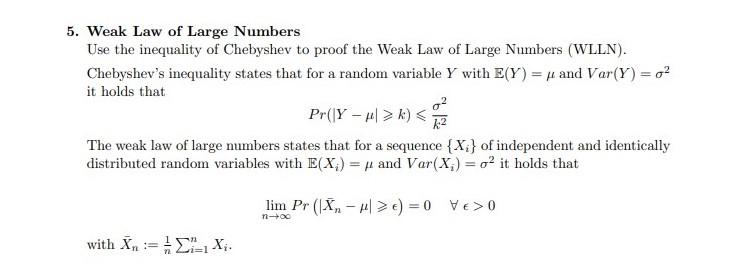probability - Proof explanation - weak law of large numbers

Let $(X_i)$ be i.i.d. random variables with mean $\mu$ and finite variance. Then $$\dfrac{X_1 + \dots + X_n}{n} \to \mu \text{ weakly }$$ I have the proof here: What I don't understand is, why it

Solved In this exercise, we shall construct an example of a

Proof of the Law of Large Numbers Part 1: The Weak Law, by Andrew Rothman

SOLVED: Exercise 9.25: By mimicking the proof of Theorem 9.9, prove the following variant of the weak law of large numbers, in which the independence assumption is weakened. Theorem: Suppose that we

Law of Large Numbers: What It Is, How It's Used, Examples

Weak Law of Large Numbers (WLLNs) and Examples

A proof of the weak law of large numbers

Unraveling the Law of Large Numbers, by Sachin Date

Solved 5. Weak Law of Large Numbers Use the inequality of

i.ytimg.com/vi/ihTpK6dXSas/hq720.jpg?sqp=-oaymwEhC

PDF) A New Proof for a Strong Law of Large Numbers of Kolmogorov's Type via Weak Convergence

Proof of the Law of Large Numbers Part 1: The Weak Law, by Andrew Rothman

real analysis - Strong Law of Large Numbers - Converse - Mathematics Stack Exchange